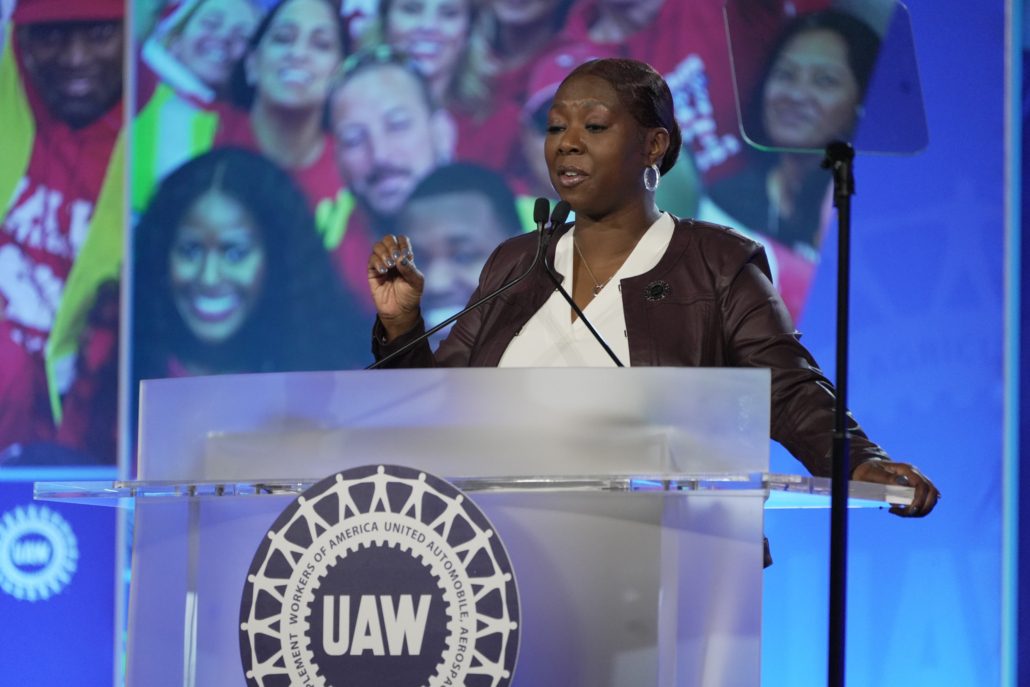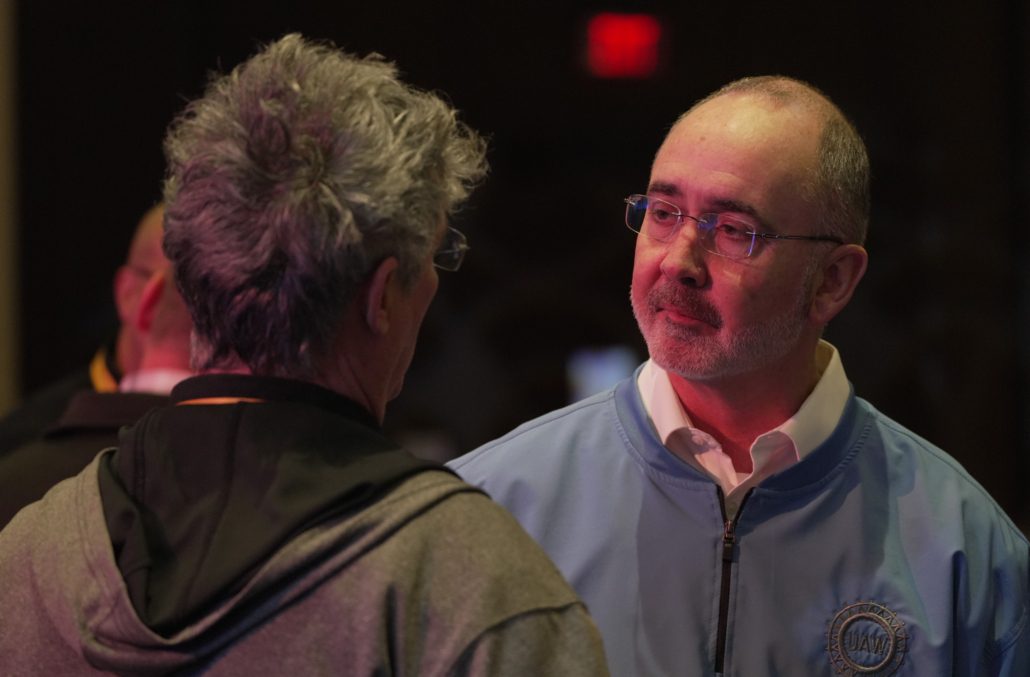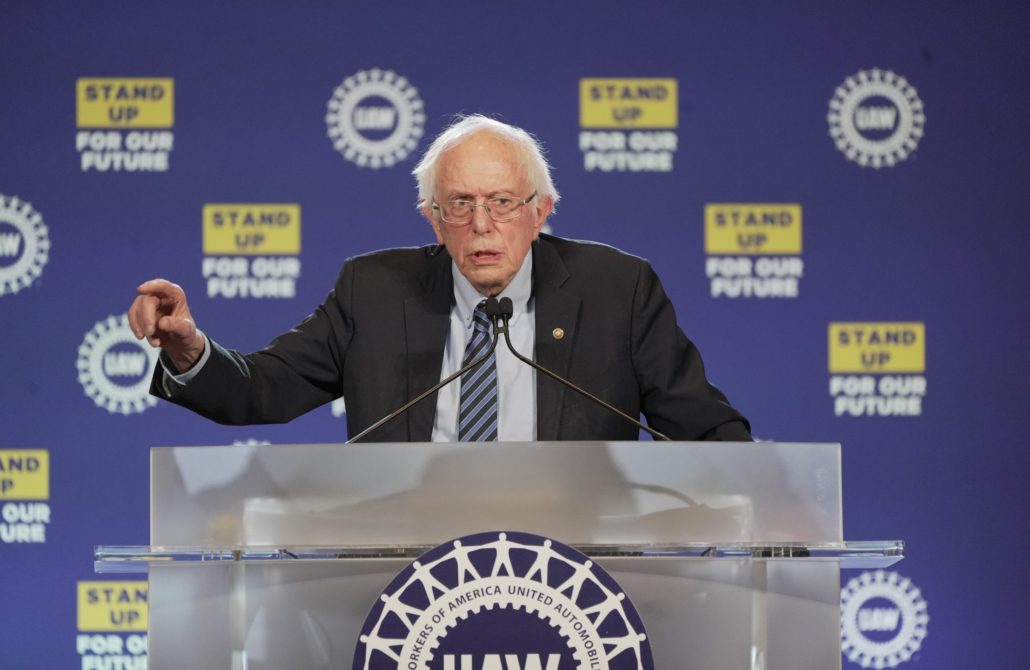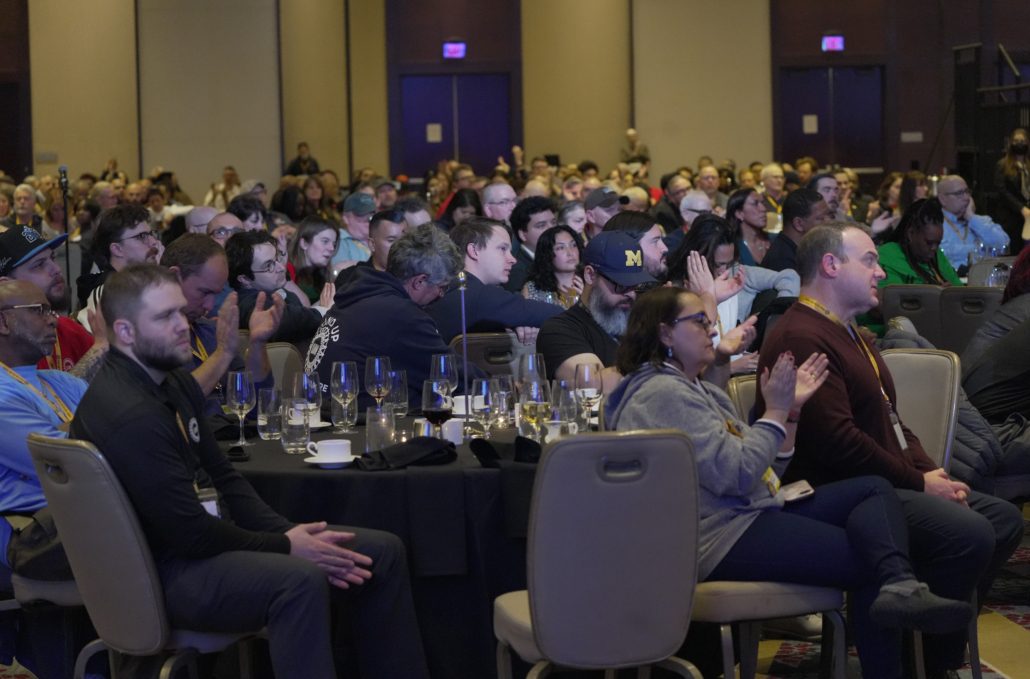Statement by UAW President Shawn Fain before the Senate Committee on Health, Education, Labor, and Pensions for a hearing on Workers Should Benefit from New Technology and Increased Productivity: The Need for a 32-Hour Work Week with No Loss in Pay.
President Fain’s full remarks:
Good morning, Chairman Sanders, Dr. Cassidy, and members of the Committee.
I’m here to talk about one of the most important issues to any union leader and any working-class person, any US senator, and any human being: our time.
As president of the United Auto Workers, I represent four hundred thousand working-class people and six hundred thousand retirees. I know when my members look back on their lives, they never say, “I wish I would have worked more.” When people reach the end of their lives, they never say, “I wish I made more money.” What they wish for is they wish they had more time.
That’s what work does. We are paid for our time, and when we work, we are sacrificing time with other people, with family and friends, and time for other things we wish to do. But time, just like every precious resource in our society, is not freely given to the working class.
Since the industrial revolution, we’ve seen productivity in our society skyrocket. With the advance of technology, one worker is now doing what twelve workers used to do. More profit is being squeezed out of every hour, every minute, and every second.
There was a time when this phenomenon was supposed to lead to workers getting their time back — getting some of their lives back. Nearly a hundred years ago, economist John Maynard Keynes spoke of the future of workers’ time. His worry was that, with all the gains in productivity, we wouldn’t know what to do with ourselves. He predicted a fifteen-hour workweek.
In my own union, I go back into our archives and I read about the fight for the thirty-hour workweek, an idea that was alive and well with our union back in the 1930s and ’40s. But today, deep in the twenty-first century, we find these ideas unimaginable.
Instead, we find workers working longer hours. We have workers working seven days a week, twelve hours a day. There are workers, union or not, working multiple jobs, and they’re living to work, they’re scraping to get by, and they’re living paycheck to paycheck. We find workers today working deep into their sixties, seventies, and eighties because they can’t afford to retire.
We find associated deaths of despair, from addiction and suicide, of people who don’t feel a life of endless, hopeless work is a life worth living. Workers have been sacrificed at the altar of greed, and they’ve been stripped of their dignity.
We have a mental health crisis we talk about a lot in this country. But we never talk about the causes of that. There have been studies: increases in stress from working seven days a week, twelve hours a day — you’re sacrificing family life and things you want to pursue — it causes increases in cortisol levels, which leads to heart disease, cancer, strokes.
Given all those facts, if someone is lucky enough to retire — typically after they’ve worked themselves to death their entire life — they face knee replacements, shoulder surgeries, and spend the rest of their lives figuring out how they’re going to survive.
It’s sad to say that in 1933, the US Senate passed legislation to establish the thirty-hour workweek, but due to intense corporate opposition, that legislation failed. But in 1940, President Franklin Delano Roosevelt signed the Fair Labor Standards Act establishing a forty-hour workweek — eighty-four years ago. Eighty-four years ago, the forty-hour week was established. Since then, we’ve had a 400 percent increase in productivity, but nothing’s changed.
That was why, in our Big Three campaign and our stand-up strike, we raised the flag for a thirty-two-hour workweek. This isn’t just a union issue, contrary to what some people want to talk about. This is a working-class issue. That’s why 75 percent of Americans stood with us in our contract fight. Because they’re all living the same reality.
Who’s going to act to fix this epidemic of lives dominated by work? Are the employers going to act? Will Congress act? How can working-class people take back their lives and take back their time?
I know what people, and many in this room, will say. They’ll say, “People just don’t want to work,” or “Working-class people are lazy.” But the truth is, working-class people aren’t lazy. They’re fed up.
They’re fed up with being left behind and stripped of dignity as wealth inequality in this nation and this world spirals out of control. They’re fed up that three families in the United States have as much wealth as the bottom 50 percent of citizens in this country. That is criminal. America is better than this.
I agree there is an epidemic in this country of people who don’t want to work. People who can’t be bothered to get up every day and contribute to our society, but instead want to freeload off the labor of others. But those aren’t blue-collar people; those aren’t working-class people.
It’s a group of people who are never talked about for how little they actually work and produce, and how little they contribute to humanity. The people I’m talking about are the Wall Street freeloaders, the masters of passive income. Those who profit off the labor of others have all the time in the world, while those who make this country run — the people who build the products and contribute the labor — have less and less time for themselves, for their families, for their lives.
Our union is going to continue to fight for the right of working-class people to take back their lives and take back their time. We ask you to stand up with the American workers and support us in that mission.









UAW Statement on the Republicans’ Anti-Worker Budget Reconciliation Bill
BOSK Workers Call on NLRB to Step In: “We Deserve a Fair Shot at a Union Vote”
UAW Statement on New York Mayoral Primary Race